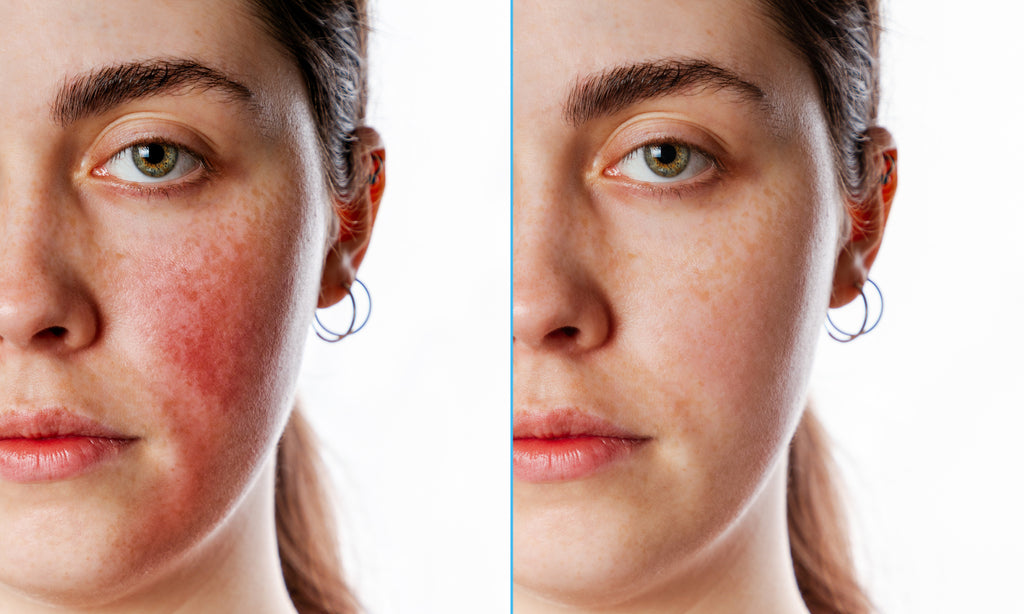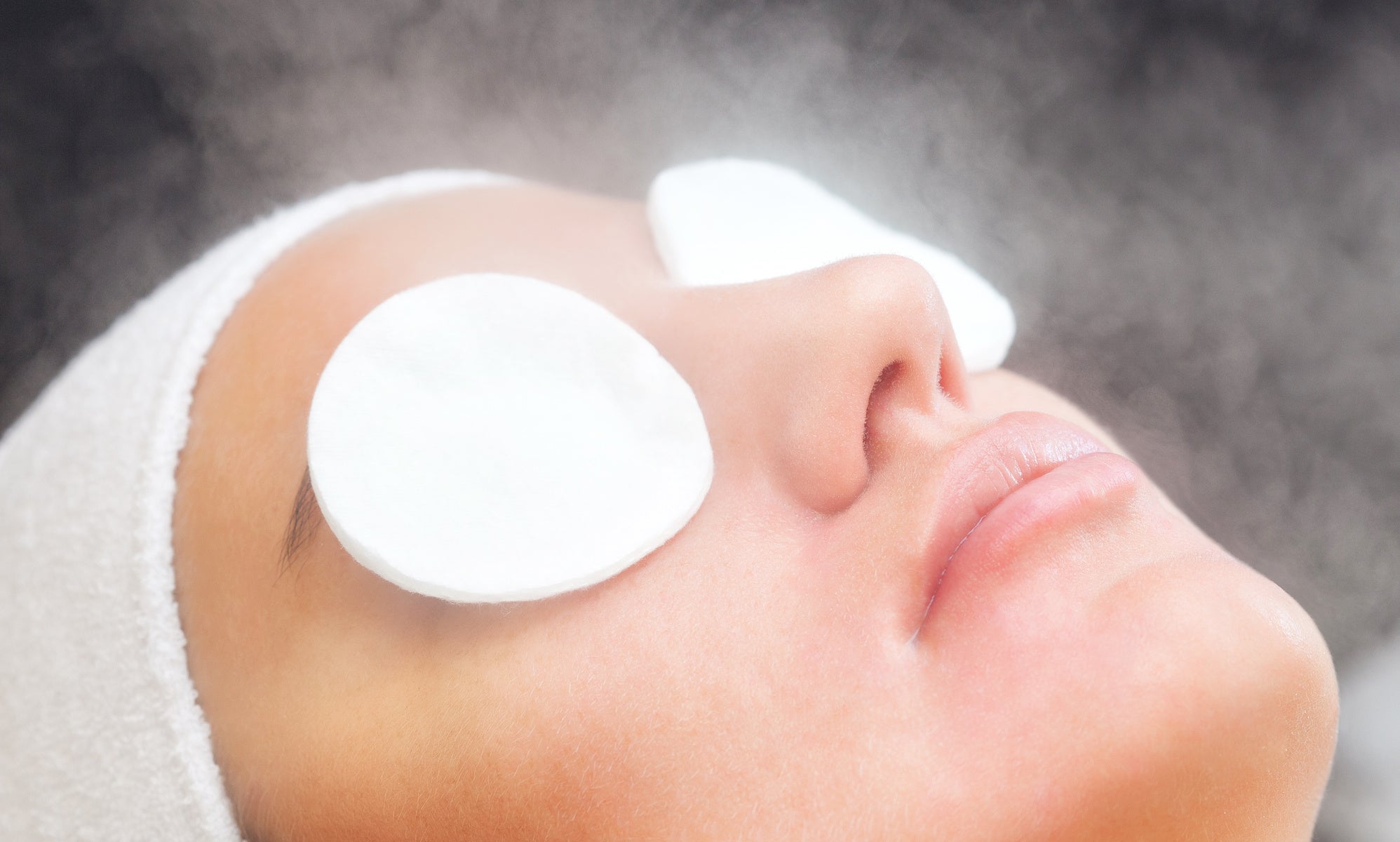
Rosacea: Symptoms, Causes, and Treatment
An estimated 16 million Americans suffer from rosacea, according to the National Rosacea Society. Only a fraction of rosacea sufferers receives the treatment necessary to keep their symptoms at bay. The NRA has declared April as Rosacea Awareness Month to bring awareness to the public about the disorder, as well as encourage those who might be affected by it to get treatment. Oxygenetix is proud to be a participant in raising awareness and sharing helpful information with you along the way.
To gain a slight glimpse into the life of someone affected by Rosacea, imagine a terrible sunburn or a bad acne breakout. Rosacea is hard to diagnose, which is why it is plagued with the name “The Great Imposter”.
Our mission was to seek solutions for our readers. Oxygenetix went straight to top medical expert, Joel Schlessinger MD, FAAD, FAACS Board-certified Dermatologist and Cosmetic Surgeon, who gives us hope and the answers we need to know.
WHAT IS ROSACEA
“Rosacea is a skin condition that causes the skin to appear red or flushed, almost like you’re blushing.” Dr. Schlessinger explains, “You might think that skin redness equals rosacea, but just because you’re quick to blush doesn’t necessarily mean you have it. Rosacea can be tricky to diagnose, and only your dermatologist can spot the differences between rosacea and unrelated conditions that can look similar, like allergic reactions, yeast infections or acne.”
It is especially important to get diagnosed quickly as Dr. Schlessinger says, “it also has the tendency to worsen over time if left untreated.”
The National Rosacea Society recommends getting checked by a dermatologist if you have any of the following symptoms:
- Transient or persistent redness on the cheeks, nose, chin or forehead
- Small visible blood vessels on the face
- Bumps or pimples on the face
- Watery or irritated eyes

via Adobe Stock Photos by Alessandro Grandini
WHAT CAUSES ROSACEA
The cause of rosacea is ultimately unknown, but according to Dr. Schlessinger, “In some patients, rosacea is caused by a bacteria called H. pylori (the same bacteria that cause ulcers in your stomach) or skin mites.” Another theory Schlessinger includes is “an overactive immune response to gradual changes in the body’s vascular system.”
There are studies being done to observe the correlation between rosacea and a manner of diseases, but none are conclusive quite yet. The National Rosacea Society recommends getting a full medical examination when appropriate if you suffer from rosacea.
Although knowledge of how rosacea is attained is widely unexplained, we do know the things that cause rosacea flare-ups and how to prevent them. Dr. Schlessinger speaks of the conditions that can cause flare-ups, “Facial redness can become worse with sun exposure, wind, colder weather, hot beverages, alcohol, spicy foods, stress and exercise, and irritants in skincare products. The best way to begin managing rosacea symptoms is to limit sun exposure (and wear a daily SPF), avoid alcohol, cut back on the jalapenos and use skincare products that are formulated to be soothing to the irritation-prone skin.”
TREATMENT
Luckily there is a variety of treatment therapies for rosacea. Visiting your dermatologist for treatments is highly recommended. Dr. Schlessinger adds, “Your dermatologist might recommend prescription medication and IPL (or Intense Pulsed Light) treatments. IPL treatments gently deliver precise amounts of intense pulsed light through the skin’s surface to treat rosacea on the face, neck, and chest. If your diet has caused rosacea flare-ups, your dermatologist could also suggest avoiding certain food and drinks.“
Dr. Schlessinger also recommends keeping your environment conducive to preventing flare-ups. “At home, turning down the heat and running a humidifier can help keep skin calm. Using an ice cube to lower the temperature of heated beverages can help you avoid flare-ups, as well.”

via Adobe Stock Photos by STEKLO_KRD
OXYGENETIX FOR ROSACEA
Rosacea can cause embarrassment and has been widely reported to hinder the social lives and emotional state of those affected. New surveys from the National Rosacea Society revealed that “most rosacea patients have felt the negative emotional effects of their condition regardless of severity or subtype. In a survey of 1,675 rosacea patients, 90 percent said that rosacea’s effect on their personal appearance had lowered their self-esteem and self-confidence, and 88 percent said they had suffered embarrassment.”
Most skincare products contain occlusive ingredients further exacerbating the symptoms of rosacea leading to increased irritation. Many are forced to live with the discomfort emotionally and physically. Oxygenetix offers a solution with breathable formulas that soothe your inflamed skin while covering redness safely. Oxygenetix products are used worldwide in medical settings due to their ability to be worn post-procedure. Whether you have mild to severe rosacea, Hydro-Matrix soothes and cools the skin while Oxygenating Foundation provides a flawless finish. Oxygenetix acts as a second skin, providing sensitive skin the protection it needs.
One of our two revolutionary foundations, Oxygenating Foundation Acne Control, includes 2% Salicylic Acid. Dr. Schlessinger explains, “Salicylic acid can improve some symptoms, but the cause of rosacea will determine if it improves or not. Generally, the anti-inflammatory properties of salicylic acid will improve redness.”
Dr. Schlessinger uses Oxygenetix in his practice and shared with us, “I recommend the entire line of Oxygenetix to my rosacea patients and they find it covers nicely with no irritation to sensitive skin individuals! It is my go-to on rosacea!”
Joel Schlessinger MD, FAAD, FAACS
Dr. Joel Schlessinger has devoted his life to dermatology and skin health. As a board-certified dermatologist and general cosmetic surgeon in Omaha, Nebraska, Dr. Schlessinger has more than 30 years of experience treating a wide variety of skin conditions.
Source:




Leave a comment
This site is protected by reCAPTCHA and the Google Privacy Policy and Terms of Service apply.